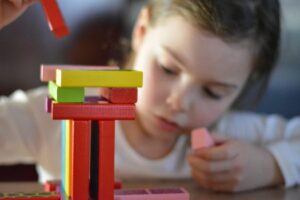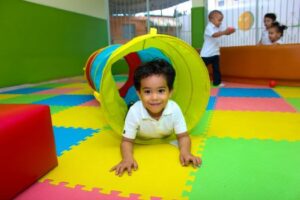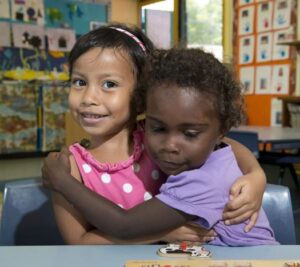Intentional Design: Promoting Positive Behavior
About This Series
The Early Intervention team’s four-part webinar series for 2020 focuses on
promoting positive behavior in young children. This webinar series covers the ABCs and the function of behavior, multi-tiered systems of support (MTSS), environmental arrangement, working with families, and promoting friendship and belonging.
Webinars
Behavior Basics: Laying the Groundwork for Positive Change
March 24, 2020 @ 11:00 am - 12:30 pm EDTThis webinar reviews the ABCs of behavior (antecedent, behavior, consequence) and helps professionals identify the function of behavior.
Find out more »Creating Space: Arranging Environments to Promote Positive Behavior
June 16, 2020 @ 11:00 am - 12:30 pm EDTThis webinar provides practical strategies and resources early childhood practitioners can easily implement in their work.
Find out more »Let’s Work Together: Building Relationships with Families to Support Positive Behavior
September 29, 2020 @ 11:00 am - 12:30 pm EDTThis webinar addresses ways practitioners can connect with and include families of young children with disabilities in identifying and implementing strategies to support positive behavior at school, c...
Find out more »Make New Friends: Promoting Friendship and Belonging
December 1, 2020 @ 11:00 am - 12:30 pm ESTThis webinar explores how early childhood practitioners can create a culture of friendship and belonging for all children.
Find out more »














